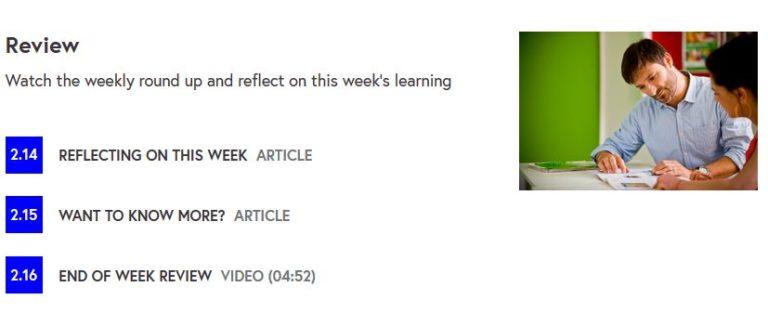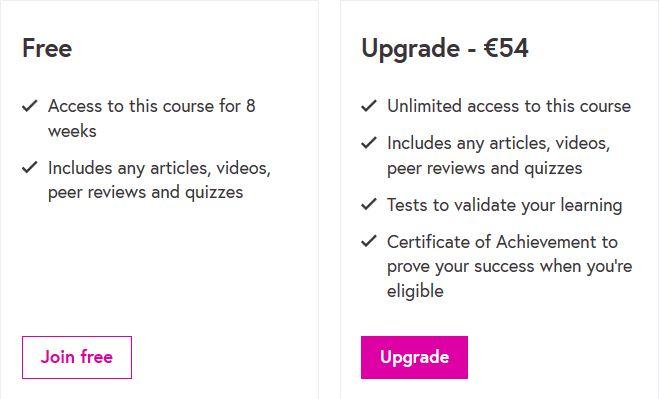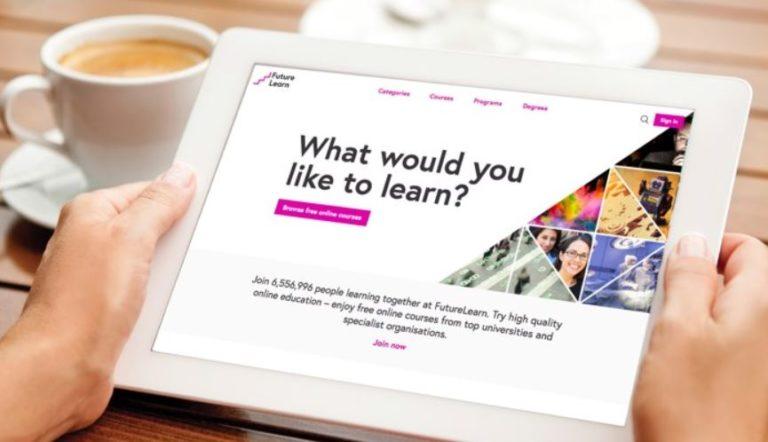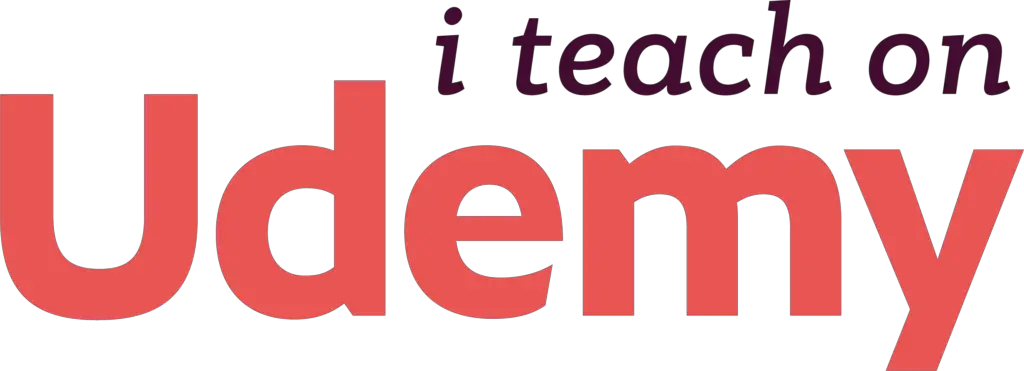Introduction to FutureLearn Courses
In this post, I will look at FutureLearn courses, both for English teachers and language learners.
I have taken courses on this platform and found them to be very valuable and interesting. This article is based on my own experiences and opinions.
What is FutureLearn?
FutureLearn is an online education platform that was founded in December 2012. The company is wholly owned by the English Open University. It is a massive open online course (MOOC) learning platform, and at the time of writing has in excess of 100 UK and international partners and nearly 8 million registered learners.
The Open University has been around for decades, is well-known and respected, and has a fine track record.
More information is available on the FutureLearn Wikipedia page.
How is FutureLearn structured?
Like many MOOC platforms, you browse the available courses and sign up for any that interest you.
The content is divided into courses, programs and degrees.
Courses
Courses are the smallest units available. They generally take between 4 to 6 weeks to complete, with a weekly time requirement of 2 to 5 hours.
Programs
Programs are a collection of courses that have been bundled together. The courses are similar in theme and make a set that is called a program.
Degrees
There are currently no degrees that are directly relevant to English teachers or learners, so I won’t go into detail about those here. By all means, check out what is there – it might still be interesting.
How do FutureLearn courses work?
The courses are split into weekly parts, with each week having many smaller components, or steps.
Although there is nothing forcing you to do anything in any particular order, it does make sense to take each step in sequence and complete a step before moving on to the next.
Each step looks at one aspect of the training material and is either a video or a written article. There are often downloadable resources and you can download the video, as well as the video transcript.
You watch the video or read the article, more than once if you want to. You can discuss the subsequent questions about the step with other participants and trainers in the comments section. The trainers are very active and really get involved in the discussions.
As with most social media platforms, you can like other people’s comments, follow fellow learners and trainers, reply to their comments and start your own.
When you have finished a step, you mark it as complete and move on to the next one.
You can easily see how far you are and your overall progress.
The great thing is that you decide when to access the material. You decide how long to spend on each part. You decide on your involvment in the discussions. It’s all very flexible.
Please note that the start dates for the courses are fixed, which ensures that learners progress through the course together. This is actually a good thing and does not contradict the flexibility statement above. It means that the discussions are relevant to your content.
Another good feature is the weekly review. The course trainers highlight some important aspects and interesting learner comments and discussion threads. There are recommendations for further study and they might even hold a live Q&A session at the end of the week. This is where it makes sense to have all students progressing through the course together.

Who benefits from FutureLearn?
If you have a decent internet connection and find a course that interests you, you can benefit from FutureLearn courses.
It’s probably best if you browse the site yourself and see what catches your eye.
If the course is not currently running, you can sign up for a later date and receive an email nearer the time reminding you of the start date. A nice touch.
What does FutureLearn cost?
The courses and programs are free to join, with an upgrade option.
This screenshot shows a typical upgrade price for a course, together with the benefits.

The free option is perfectly valid as part of your continuous professional development.
You can download the videos during the course, so unlimited access is not really a persuasive argument in this respect.
Articles and comments are not available for free users once the course is over and there are some really insightful information from fellow students. This could be a reason to upgrade.
The availability of certificates is a matter of personal preference.
For programs, you need to upgrade each course in the program and pass a final assessment in order to claim your award, as shown here.

Summary
As mentioned at the start, I have taken FutureLearn courses and can highly recommend the platform.
The courses were interesting and insightful. The fellow learners’ input in the comments section of each part was also an excellent source of useful information.
Have you ever taken one of the FutureLearn courses? Or are you curious and want to find out more?
Please use the comments section below and tell us all about it.





